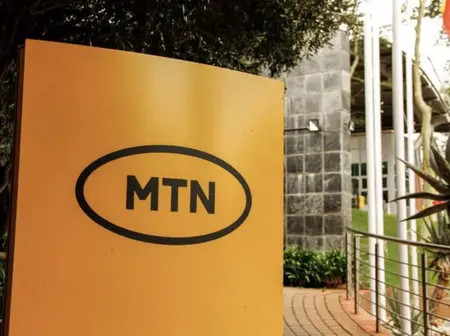MTN Group is laying down its markers for the next decade. With its Ambition 2025 plan reaching maturity, the company is already mapping a broader agenda: a home connectivity strategy that aims to anchor its revenue and profit growth through 2030.
Ralph Mupita, MTN’s chief executive, told reporters that the home is “where the growth and profit pools will be,” pointing to the enormous opportunity across the group’s core markets.
For MTN, that means not just selling mobile data, but positioning itself as the primary gateway into African households.
Rather than sinking billions into building new fibre networks, MTN intends to use a blend of approaches. Fibre-to-the-home (FTTH) will be pursued through acquisitions or partnerships with existing operators, while fixed wireless access (FWA), powered by 5G spectrum, will serve as the scalable alternative. The company views this hybrid model as more sustainable than trying to replicate fibre rollouts from scratch.
That stance also sets it apart from rival Vodacom, which recently bought into Maziv, the parent of fibre player Vumatel. MTN, by contrast, is keeping its balance sheet lighter while lobbying regulators for bigger spectrum allocations. More spectrum, especially in the 3.5 GHz band, is central to its plan: it ensures that home broadband services do not compete with mobile users for capacity.
Home broadband is only part of the equation. Mupita says the device ecosystem remains a bottleneck. Entry-level smartphones in many African markets hover around USD 40 to USD 50, a price point that locks millions out of advanced services. MTN wants that number closer to USD 20. If manufacturers like Tecno can deliver, it would accelerate adoption and open the door to a new wave of digital consumption.
MTN’s home connectivity strategy does not exist in isolation. Alongside broadband, the group is preparing investments in digital infrastructure: artificial intelligence capabilities, edge data centers, and fintech platforms. Together, these areas are expected to diversify revenues and reduce dependence on traditional voice and mobile data.
Industry analysts note that MTN’s pivot reflects a larger shift in African telecoms—where connectivity is being bundled with services that touch finance, media, and enterprise IT. By positioning itself at the center of this ecosystem, MTN is betting that households, not just individuals, will become the next battleground for growth.
There are risks. Fibre deals depend on valuations that make sense, and spectrum auctions are subject to regulatory politics. Device affordability is also tied to global supply chains beyond MTN’s control. Still, the strategy signals a disciplined approach: avoiding heavy capex traps while focusing on scalable levers.
If MTN executes well, it could redefine what “home internet” means for millions of African families—turning the living room into the new frontier of telecom growth.

Leave a Reply